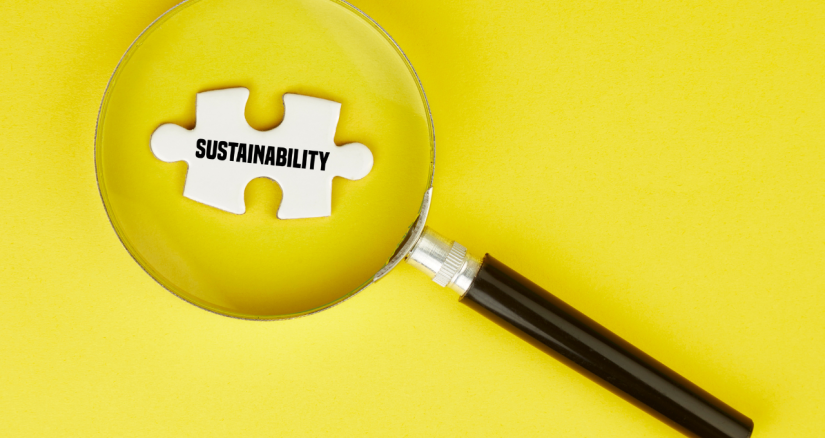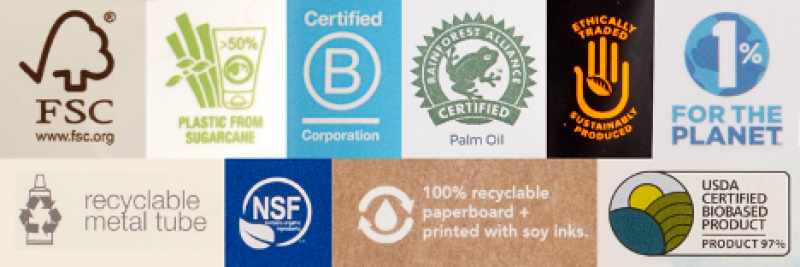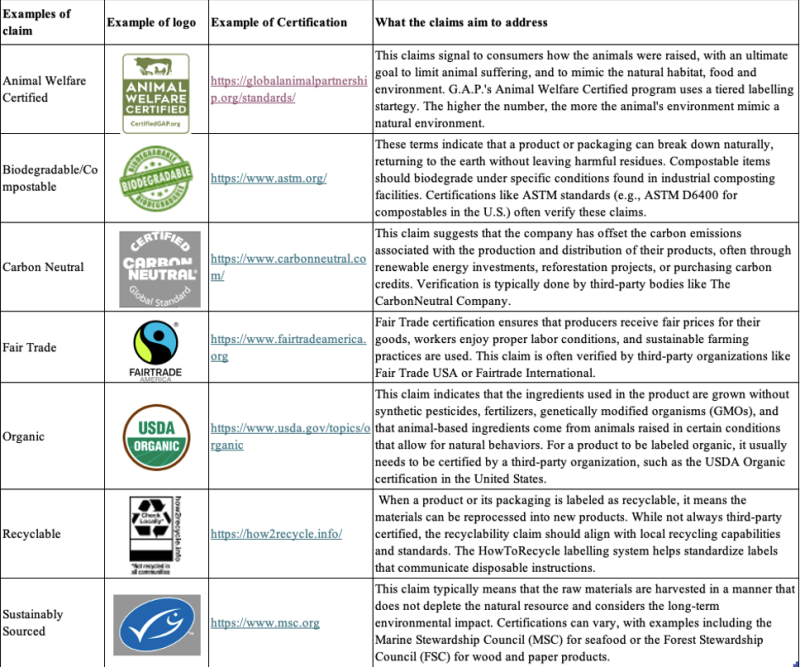
Deciphering Sustainability Claims on Pet Food Packaging

Buzzwords like “sustainable,” “eco-friendly,” and “recyclable” are catnip to conscious consumers, and while they may be valid, sometimes some companies can use them in deceptive environmental marketing claims, whether consciously, or unknowingly. Some claims and statements suggest the product has specific and far-reaching environmental benefits. Still, without validation or substantiation to support these attributes, they are not only meaningless but can be a violation of the law.
That is why understanding and verifying sustainability claims on pet food packaging has become crucial for pet food brands, retailers, co-manufacturers, and pet parents. Here is a starter guide to navigating these claims, ensuring they are not just greenwashed but genuinely indicative of more sustainable practices.
For Pet Food Brands and Co-manufacturers:
- Understand Lifecycle Analysis: Start by understanding the lifecycle of the pet food, pet treats, or supplements. As highlighted in "The Upcycle" by McDonough & Braungart,1 consider every stage of the pet food's journey, from sourcing ingredients to production, packaging, distribution, and disposal. Implement strategies that reduce environmental impact at each stage.
- Choose Sustainable Ingredients and Materials: Reflect on insights from Rob Thompson's "Sustainable Materials, Processes, and Production."2 Options for more sustainable, renewable, or recycled materials for packaging. Partner with ingredient suppliers and investigate alternative ingredients, such as plant-based proteins, rendered proteins, invasive species, insect-based proteins, and upcycled ingredients.
- Provide substantiation: Conduct due diligence and research to verify that the pet product claims and attributes are backed by credible certifications or evidence. Share the substantiation on the packaging or a website, whenever possible.
- Measure and Communicate Impact: As Marc J. Epstein and Adriana Rejc Buhovac suggested in "Making Sustainability Work,"3 measure environmental, social, and economic impacts. Transparently communicate these findings to consumers, using clear, understandable metrics.
For Retailers:
1. Vet Products: Ensure the pet food brands stocked are substantiated by credible evidence or certifications regarding their sustainability claims. Understand the criteria for various sustainability certifications to help guide product selection.
Sustainability claims are diverse and can vary widely across industries, including the pet food sector. Here are seven popular sustainability claims, what they generally mean, and whether they typically involve third-party certification:

Educate Customers: Provide clear, accessible information about what various sustainability claims mean, helping pet parents make informed choices. Create in-store or online guides that explain common sustainability terms and certifications seen on pet food packaging.
For Pet Parents
- Look Beyond the Label: Understand that sustainability claims can be broad. Investigate what specific practices are behind a "sustainable" label on pet food packaging. Is the brand transparent about its sourcing, manufacturing, and packaging processes?
- Seek Certifications: Look for third-party certifications that validate sustainability claims. These certifications should have clear standards and verification processes to ensure they're more than just marketing.
- Consider the Lifecycle of the Finished Product: Inspired by the 2002 book, "Cradle to Cradle,"4 think about the product's end-of-life. Is the packaging recyclable or compostable? Does the brand offer a take-back or recycling program?
Deciphering sustainability claims requires understanding the broader context of these assertions—the processes, materials, and impacts involved in bringing a product to market. By being informed and critical, all stakeholders in the pet food industry, as well as pet parents, can actively contribute to a more sustainable future.
References
- McDonough, W., & Braungart, M. 2013. The Upcycle: Beyond Sustainability--Designing for Abundance. North Point Press.
- Thompson, R. 2013. Sustainable Materials, Processes, and Production. Thames & Hudson.
- Epstein, M. J., & Buhovac, A. R. 2014. Making Sustainability Work: Best Practices in Managing and Measuring Corporate Social, Environmental, and Economic Impacts. Berrett-Koehler Publishers.
- McDonough, W. 2002. Cradle to Cradle: Remaking the Way We Make Things. North Point Press; First Edition.
Follow us on LinkedIn for the latest updates on all things happening here at BSM Partners.
About the Author
Émilie Mesnier's passion for pets ignited during a 2007 internship in palatability research and has propelled her ever since. A French-trained food scientist, she now blends two decades of global know-how—nutrition, marketing, sustainability, animal welfare and international growth—into one goal: better foods and lives for animals. A lifelong learner who has absorbed insights from 80-plus business books on strategy and continuous improvement, Émilie turns ideas into action every day. After 16 years in the US and running a small farm animal rescue sanctuary in Utah, Emilie moved children, husband and two senior pets back to France in early 2025 to bring BSM Partners’ full suite of consulting services closer to clients across the European market.
This content is the property of BSM Partners. Reproduction or retransmission or repurposing of any portion of this content is expressly prohibited without the approval of BSM Partners and is governed by the terms and conditions explained here.